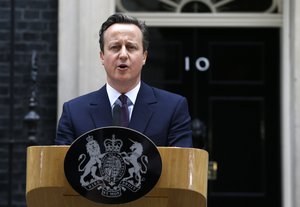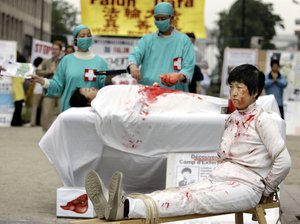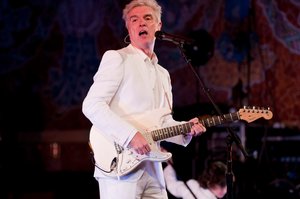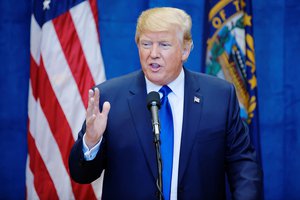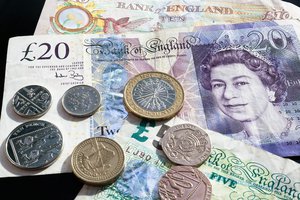- published: 04 Sep 2010
- views: 2525
-
remove the playlistOlympic Charter
- remove the playlistOlympic Charter
- published: 07 Feb 2014
- views: 18126
- published: 06 Feb 2014
- views: 5773
- published: 11 Aug 2012
- views: 5913
- published: 05 Feb 2014
- views: 865
- published: 05 Dec 2012
- views: 189
- published: 05 Feb 2014
- views: 844
- published: 15 Nov 2013
- views: 727
- published: 07 Feb 2014
- views: 1599

The Olympic Charter, last updated March 21, 1992, is a set of rules and guidelines for the organization of the Olympic Games, and for governing the Olympic Movement. Adopted by International Olympic Committee (IOC), it is the codification of the Fundamental Principles, Rules and By-laws. French and English are the official languages of the Olympic Charter. If, at any time, there is a discrepancy between versions of the text, the French text prevails.
Throughout the history of the Olympics, the Olympic Charter has often decided the outcome of Olympic controversy. As expressed in its introduction, the Olympic Charter serves 3 main purposes:
With its 5 chapters and 61 articles, the Olympic Charter outlines in detail several guidelines and rules. This article highlights and summarizes those items considered most important to governing the Olympic Games, the Olympic movement, and its 3 main constituents: the International Olympic Committee, the International Federations, and the National Olympic Committees.
This article is licensed under the Creative Commons Attribution-ShareAlike 3.0 Unported License, which means that you can copy and modify it as long as the entire work (including additions) remains under this license.
- Loading...

-
 3:14
3:14Figure-Skating Gold medalist violated Olympic Charter
Figure-Skating Gold medalist violated Olympic CharterFigure-Skating Gold medalist violated Olympic Charter
-
 0:51
0:51Olympic Charter Google 2014
Olympic Charter Google 2014Olympic Charter Google 2014
A nice Google Doodle celebrates the beginning of the XXII Olympic Winter Games in Sotschi, Russia. On the Google homepages it says: "The practice of sport is a human right. Every individual must have the possibility of practicing sport, without discrimination of any kind and in the Olympic spirit, which requires mutual understanding with a spirit of friendship, solidarity and fair play." -- Olympic Charter Read the full Olympic Charter here: http://www.olympic.org/Documents/olympic_charter_en.pdf Music: "Snow Queen" by Kevin MacLeod More about this doodle and a comparison to german stamps here: http://blog.briefmarken-bilder.de/google-eroeffnet-winterspiele-mit-der-olympischen-charta -
 1:04
1:04Olympic Charter Google 2014 #goodoocollect
Olympic Charter Google 2014 #goodoocollectOlympic Charter Google 2014 #goodoocollect
There is a Google Doodle about the Olympic Charter. Today is the opening of the 22. Winter Olympics in Sochi. The 2014 Winter Olympics take place from 7 to 23 February in Sochi, Russia. Google did a Google Doodle not as common in the typical Google colors. They used the rainbow colors to set a strong statement againgst discrimination. It's a Google Doodle for the Olympic Charter. They quote a chapter of the Olympic Charter, too: "The practice of sport is a human right. Every individual must have the possibility of practicing sport, without discrimination of any kind and in the Olympic spirit, which requires mutual understanding with a spirit of friendship, solidarity and fair play." More information about the Olympic Games and the Olympic Charter in Sochi on http://www.sochi2014.com/ This is the 1st of maybe more Olympic Google Doodles. Stay tuned! Do you watch the 2014 Winter Olympics, too? Which discipline do you like the most? Honor the Olympics with a thumb up and leave a comment! Please help me to puplish this video! Share it on Facebook, Twitter, Google+ and Co. if you like it! Thanks a lot! Facebook: https://www.facebook.com/GoogleDoodleCollection You like the Doodle and you want to see more Videos like this about the Olympic Charter? Subscribe to my channel! Music by myself -
 1:54
1:54South Korea is to ignore the Olympic Charter
South Korea is to ignore the Olympic CharterSouth Korea is to ignore the Olympic Charter
London 2012 Olympic Third-place play-off football Korean players have raised a placard in the ground. There were written this way. Dokdo is our land! Dokdo is Takeshima that the territory of Japan. Japanese lived from around 1618. South Korean military has killed the Japanese fishermen on January 12, 1953. South Korea has sent a military occupation to Takeshima. It is that on April 20, 1953. At that time South Korean military has killed 5 Japanese people. and hurt 39 people. There is no army in Japan. Because Japan has been determined Renunciation of war by the Constitution. Japan does not resolve the dispute in the war and murder. Japan has proposed to Korea that resolve by the International Court of Justice (ICJ). From 1954 until now. South Korea has rejected it. In the Olympic Charter Political propaganda activities are not allowed. Because it does not meet the significance of the Olympic Games. We blame the people who do not understand the significance of the Olympic Games. Please raise your voice. -
 2:38
2:38RUSSIA SOCHI GAY RIGHTS (Olympic charter supports gay rights - campaigner)
RUSSIA SOCHI GAY RIGHTS (Olympic charter supports gay rights - campaigner)RUSSIA SOCHI GAY RIGHTS (Olympic charter supports gay rights - campaigner)
With the Winter Olympics only two days away, gay rights campaigners called for an end to discrimination as activists staged protests in 20 cities around the world on Wednesday (February 5). Activists from the All Out gay rights group have urged major corporate sponsors to speak out about the way Games host Russia treats gay people. Rights groups have also written to the heads of the 10 global Olympic sponsors -- which also include U.S. consumer goods group Procter & Gamble and Coca-Cola -- calling on them to use their marketing to promote equality. "In the context of Sochi I think, how the LGBT community is being talked about or treated is on display more so than it would be in other countries," Hudson Taylor, the Executive Director of gay rights group "Athlete Ally" said at the Russian Black Sea resort. Russian President Vladimir Putin wants the Games in Sochi to showcase a strong, modern Russia but attention has also focused on a law passed last year that critics say fuels discrimination against gays and lesbians. The issue has caused embarrassment for the major companies who pay around 100 million US dollars each for rights to sponsor the Olympics over a four-year period and want to tap into a feelgood atmosphere at Games time. Sponsors have said they are opposed to discrimination but say it is up to the International Olympic Committee (IOC) to ensure that the Games are free of prejudice. "When we look at the Olympic charter and we look at the language of the principles of Olympism, they so clearly speak against discrimination. Rule two is actually in the mission and vision of the Olympics, is that we should act against any form of discrimination affecting the Olympic movement so I think within the charter itself there is a drive to create change and promote progress and although it can be seen as political, it is really not about politics, it's about principles," Taylor said. Athletes face a dilemma over whether to speak out and risk falling foul of another IOC rule outlawing political protests at Games. Last week the IOC said athletes at the Winter Olympics may be punished for making statements on the podium against Russia's anti-gay laws or human rights record but could do so at news conferences without fear of sanction. Thomas Bach, president of the International Olympic Committee, explained that under the Olympic Charter political protests and demonstrations within venues are not allowed. "There's been a very cautious environment for an athlete looking to make a statement," said Taylor. "That being said having the president of the IOC say that athletes can say what they want interviews. I think that is an enormous stamp of approval and will make many athletes feel comfortable stating their mind on these issues." Athlete Ally, a group formed to fight homophobia in sport, is running a campaign based on Principle 6 of the Olympic charter which spells out a commitment to equality for all. It is using the Principle 6 tag on social media and a range of clothing to get its message across and sees it as a way for athletes to make their point within the rules. "So with the Principle 6 campaign we now have over 50 current and former Olympic athletes that have signed on to support what we're trying to do and I think that that is a tremendous statement. A handful of those Olympians are here competing at Sochi so I think that this will be remembered as a Games in which athletes stood up for human rights, in which they upheld the Olympic charter and the Olympic values," Taylor said. -
 2:29
2:29Politics on IOC's decision to suspend IOA for violating Olympic charter
Politics on IOC's decision to suspend IOA for violating Olympic charterPolitics on IOC's decision to suspend IOA for violating Olympic charter
Politics on IOC's decision to suspend IOA for violating Olympic charter . For more info log on to: www.youtube.com/abpnewsTV -
 1:04
1:042014 Winter Olympics in Sochi, Russia - Olympic Charter - Rainbow Doodle for Gay Rights
2014 Winter Olympics in Sochi, Russia - Olympic Charter - Rainbow Doodle for Gay Rights2014 Winter Olympics in Sochi, Russia - Olympic Charter - Rainbow Doodle for Gay Rights
Olympic Charter - Rainbow Doodle for Gay Rights 2014 Winter Olympics in Sochi - Russia For the start of the 22nd Winter Olympics, Google marks this Event with a nice Doodle.. The 2014 Winter Olympics, officially the Olympic Winter Games, or the 22nd Winter Olympics, are scheduled to take place from 7 to 23 February 2014, in Sochi, Russia, with some events held in the resort settlement of Krasnaya Polyana. The Sochi Olympics will be the first Olympics in the Russian Federation since the breakup of the USSR in 1991. The USSR was the host nation for the 1980 Summer Olympics in Moscow. More Information: http://www.doodlecollect.wordpress.com https://en.wikipedia.org/wiki/2014_Winter_Olympics Music: Easy Lemon by Kevin MacLeod #WinterOlympics #WinterOlympics2014 #Olympics #Olympics2014 #Doodle #GoogleDoodle #Google #IceHockey #Curling #FigureSkating #Bobsleigh #Sochi #Sports #Snowboard #CurrentEvent #Skiing #Athletes -
 14:52
14:52AISTS MSA Team Projects 2013 - Rule 50 of the Olympic Charter for the IOC
AISTS MSA Team Projects 2013 - Rule 50 of the Olympic Charter for the IOCAISTS MSA Team Projects 2013 - Rule 50 of the Olympic Charter for the IOC
The team did a thorough review and comparison between the sport specific guidelines on Rule 50 found within the Olympic Charter of International Olympic Committee and the International Federations specific rules on authorised identifications, for Athletes, Coaches, Officials, Technical staff on Uniform & Equipment that are currently applicable during their international competitions and proposed recommendations to simplify and achieve smoother implementation of Rule 50 during future Summer Olympic games. About the AISTS The AISTS (International Academy for Sports Science and Technology) is a foundation located in Lausanne, the Olympic Capital, Switzerland. It was founded in 2000 by the International Olympic Committee, EPFL (Swiss Federal Institute of Technology Lausanne), IMD Business School, University of Lausanne, University of Geneva, IDHEAP (Swiss Graduate School of Public Administration), EHL (Ecole Hôtelière de Lausanne), City of Lausanne, and the Canton of Vaud. The mission of the AISTS is to Master Sport by positively contributing to sports management through a multi-disciplinary approach to education and sciences and by remaining at the forefront of the sport industry's development and the Olympic movement. Official website: http://www.aists.org -
 7:19
7:19Microsoft's New CEO, Google Actions, Germany Penalized, Facebook 10 & Olympic Charter Gay Pride Logo
Microsoft's New CEO, Google Actions, Germany Penalized, Facebook 10 & Olympic Charter Gay Pride LogoMicrosoft's New CEO, Google Actions, Germany Penalized, Facebook 10 & Olympic Charter Gay Pride Logo
http://www.SERoundtable.com/ - Busy week in search, where Microsoft's new CEO is Satya Nadella, a name most in search know, since he lead up Microsoft Search. Google has a new manual action for rich snippet spam named spammy structured markup. Google slapped a German agency and their clients for their link network and link schemes and promised more is to come. I posted the monthly Google webmaster recap this week. Google and the European Union settle on rival links, what they may look like might shock you. Google now shows playable videos for short music queries. Google Places expanded their international categories. Google might delist you places listings if you do not act. Facebook turned 10 and there was no Google Doodle. Yahoo might make a full come back in search. Google has a special logo for the Olympics, citing the Olympic Charter for gay rights against Russia. I posted our SMX Israel recap this week. That was this past week in search at the Search Engine Roundtable. Microsoft's New CEO Is A Search Guy, Satya Nadella : http://www.seroundtable.com/satya-nadella-microsoft-ceo-18064.html Google Sends Manual Actions For Rich Snippet Spam & Spammy Structured Markup : http://www.seroundtable.com/google-spammy-structured-markup-notifications-18061.html Google To Bring It On German Link Spammers : http://www.seroundtable.com/google-german-link-warning-18058.html Google Boots Large German Agency & Clients For Link Schemes : http://www.seroundtable.com/google-german-link-penalty-18075.html February 2014 Google Webmaster Report : http://www.seroundtable.com/february-2014-google-webmaster-report-18072.html Google & EU Settle Antitrust Claims Over Competitor Links : http://www.seroundtable.com/google-eu-rival-links-settlement-18069.html Playable YouTube Videos Directly In Google's Search Results : http://www.seroundtable.com/google-full-size-youtube-videos-18062.html Google Places Business Adds 1,000 Categories Internationally : http://www.seroundtable.com/google-places-expands-international-categories-18049.html Google Giving Some Business Owners 3 Weeks To Save Their Google Place Listing : http://www.seroundtable.com/google-places-maps-action-emails-18071.html Facebook Turns 10, Why No Google Doodle? : http://www.seroundtable.com/facebook-google-doodle-10-18055.html Can Yahoo Make A Come Back Into Search? : http://www.seroundtable.com/yahoo-search-come-back-18056.html Google Sochi Olympics Logo For Olympic Charter & Gay Rights : http://www.seroundtable.com/google-olympic-charter-gay-rights-18074.html SMX Israel 2014 Recap: Our Best Show Yet : http://www.seroundtable.com/smx-israel-2014-recap-18057.html -
 2:30
2:30Olympic Charter's Flight to Skiathos (LSZR-LGSK)
Olympic Charter's Flight to Skiathos (LSZR-LGSK)
- Anita DeFrantz
- Asian Games
- Avery Brundage
- Demetrius Vikelas
- Doping (sport)
- Godefroy de Blonay
- Human Rights Watch
- IOC law
- Jacques Rogge
- List of IOC meetings
- Marion Jones
- Olympic Charter
- Olympic Congress
- Olympic Cup
- Olympic Games
- Olympic Order
- Olympic sports
- Olympic symbols
- Olympic torch
- Pan American Games
- Pierre de Coubertin
- Saudi Arabia
- Sigfrid Edström
-

Figure-Skating Gold medalist violated Olympic Charter
-

Olympic Charter Google 2014
A nice Google Doodle celebrates the beginning of the XXII Olympic Winter Games in Sotschi, Russia. On the Google homepages it says: "The practice of sport is a human right. Every individual must have the possibility of practicing sport, without discrimination of any kind and in the Olympic spirit, which requires mutual understanding with a spirit of friendship, solidarity and fair play." -- Olympic Charter Read the full Olympic Charter here: http://www.olympic.org/Documents/olympic_charter_en.pdf Music: "Snow Queen" by Kevin MacLeod More about this doodle and a comparison to german stamps here: http://blog.briefmarken-bilder.de/google-eroeffnet-winterspiele-mit-der-olympischen-charta -

Olympic Charter Google 2014 #goodoocollect
There is a Google Doodle about the Olympic Charter. Today is the opening of the 22. Winter Olympics in Sochi. The 2014 Winter Olympics take place from 7 to 23 February in Sochi, Russia. Google did a Google Doodle not as common in the typical Google colors. They used the rainbow colors to set a strong statement againgst discrimination. It's a Google Doodle for the Olympic Charter. They quote a chapter of the Olympic Charter, too: "The practice of sport is a human right. Every individual must have the possibility of practicing sport, without discrimination of any kind and in the Olympic spirit, which requires mutual understanding with a spirit of friendship, solidarity and fair play." More information about the Olympic Games and the Olympic Charter in Sochi on http://www.sochi2014.com/ Thi... -

South Korea is to ignore the Olympic Charter
London 2012 Olympic Third-place play-off football Korean players have raised a placard in the ground. There were written this way. Dokdo is our land! Dokdo is Takeshima that the territory of Japan. Japanese lived from around 1618. South Korean military has killed the Japanese fishermen on January 12, 1953. South Korea has sent a military occupation to Takeshima. It is that on April 20, 1953. At that time South Korean military has killed 5 Japanese people. and hurt 39 people. There is no army in Japan. Because Japan has been determined Renunciation of war by the Constitution. Japan does not resolve the dispute in the war and murder. Japan has proposed to Korea that resolve by the International Court of Justice (ICJ). From 1954 until now. South Korea has rejected it. In the Olympic C... -

RUSSIA SOCHI GAY RIGHTS (Olympic charter supports gay rights - campaigner)
With the Winter Olympics only two days away, gay rights campaigners called for an end to discrimination as activists staged protests in 20 cities around the world on Wednesday (February 5). Activists from the All Out gay rights group have urged major corporate sponsors to speak out about the way Games host Russia treats gay people. Rights groups have also written to the heads of the 10 global Olympic sponsors -- which also include U.S. consumer goods group Procter & Gamble and Coca-Cola -- calling on them to use their marketing to promote equality. "In the context of Sochi I think, how the LGBT community is being talked about or treated is on display more so than it would be in other countries," Hudson Taylor, the Executive Director of gay rights group "Athlete Ally" said at the Russian Bl... -

Politics on IOC's decision to suspend IOA for violating Olympic charter
Politics on IOC's decision to suspend IOA for violating Olympic charter . For more info log on to: www.youtube.com/abpnewsTV -

2014 Winter Olympics in Sochi, Russia - Olympic Charter - Rainbow Doodle for Gay Rights
Olympic Charter - Rainbow Doodle for Gay Rights 2014 Winter Olympics in Sochi - Russia For the start of the 22nd Winter Olympics, Google marks this Event with a nice Doodle.. The 2014 Winter Olympics, officially the Olympic Winter Games, or the 22nd Winter Olympics, are scheduled to take place from 7 to 23 February 2014, in Sochi, Russia, with some events held in the resort settlement of Krasnaya Polyana. The Sochi Olympics will be the first Olympics in the Russian Federation since the breakup of the USSR in 1991. The USSR was the host nation for the 1980 Summer Olympics in Moscow. More Information: http://www.doodlecollect.wordpress.com https://en.wikipedia.org/wiki/2014_Winter_Olympics Music: Easy Lemon by Kevin MacLeod #WinterOlympics #WinterOlympics2014 #Olympics #Olympics2... -

AISTS MSA Team Projects 2013 - Rule 50 of the Olympic Charter for the IOC
The team did a thorough review and comparison between the sport specific guidelines on Rule 50 found within the Olympic Charter of International Olympic Committee and the International Federations specific rules on authorised identifications, for Athletes, Coaches, Officials, Technical staff on Uniform & Equipment that are currently applicable during their international competitions and proposed recommendations to simplify and achieve smoother implementation of Rule 50 during future Summer Olympic games. About the AISTS The AISTS (International Academy for Sports Science and Technology) is a foundation located in Lausanne, the Olympic Capital, Switzerland. It was founded in 2000 by the International Olympic Committee, EPFL (Swiss Federal Institute of Technology Lausanne), IMD Business Sch... -

Microsoft's New CEO, Google Actions, Germany Penalized, Facebook 10 & Olympic Charter Gay Pride Logo
http://www.SERoundtable.com/ - Busy week in search, where Microsoft's new CEO is Satya Nadella, a name most in search know, since he lead up Microsoft Search. Google has a new manual action for rich snippet spam named spammy structured markup. Google slapped a German agency and their clients for their link network and link schemes and promised more is to come. I posted the monthly Google webmaster recap this week. Google and the European Union settle on rival links, what they may look like might shock you. Google now shows playable videos for short music queries. Google Places expanded their international categories. Google might delist you places listings if you do not act. Facebook turned 10 and there was no Google Doodle. Yahoo might make a full come back in search. Google has ... -

Figure-Skating Gold medalist violated Olympic Charter
- Order: Reorder
- Duration: 3:14
- Updated: 04 Sep 2010
- views: 2525
- published: 04 Sep 2010
- views: 2525
Olympic Charter Google 2014
- Order: Reorder
- Duration: 0:51
- Updated: 07 Feb 2014
- views: 18126
- published: 07 Feb 2014
- views: 18126
Olympic Charter Google 2014 #goodoocollect
- Order: Reorder
- Duration: 1:04
- Updated: 06 Feb 2014
- views: 5773
- published: 06 Feb 2014
- views: 5773
South Korea is to ignore the Olympic Charter
- Order: Reorder
- Duration: 1:54
- Updated: 11 Aug 2012
- views: 5913
- published: 11 Aug 2012
- views: 5913
RUSSIA SOCHI GAY RIGHTS (Olympic charter supports gay rights - campaigner)
- Order: Reorder
- Duration: 2:38
- Updated: 05 Feb 2014
- views: 865
- published: 05 Feb 2014
- views: 865
Politics on IOC's decision to suspend IOA for violating Olympic charter
- Order: Reorder
- Duration: 2:29
- Updated: 05 Dec 2012
- views: 189
- published: 05 Dec 2012
- views: 189
2014 Winter Olympics in Sochi, Russia - Olympic Charter - Rainbow Doodle for Gay Rights
- Order: Reorder
- Duration: 1:04
- Updated: 05 Feb 2014
- views: 844
- published: 05 Feb 2014
- views: 844
AISTS MSA Team Projects 2013 - Rule 50 of the Olympic Charter for the IOC
- Order: Reorder
- Duration: 14:52
- Updated: 15 Nov 2013
- views: 727
- published: 15 Nov 2013
- views: 727
Microsoft's New CEO, Google Actions, Germany Penalized, Facebook 10 & Olympic Charter Gay Pride Logo
- Order: Reorder
- Duration: 7:19
- Updated: 07 Feb 2014
- views: 1599
- published: 07 Feb 2014
- views: 1599
Olympic Charter's Flight to Skiathos (LSZR-LGSK)
- Order: Reorder
- Duration: 2:30
- Updated: 22 Jun 2013
- views: 1144
- Playlist
- Chat
- Playlist
- Chat

Figure-Skating Gold medalist violated Olympic Charter
- Report rights infringement
- published: 04 Sep 2010
- views: 2525

Olympic Charter Google 2014
- Report rights infringement
- published: 07 Feb 2014
- views: 18126

Olympic Charter Google 2014 #goodoocollect
- Report rights infringement
- published: 06 Feb 2014
- views: 5773

South Korea is to ignore the Olympic Charter
- Report rights infringement
- published: 11 Aug 2012
- views: 5913

RUSSIA SOCHI GAY RIGHTS (Olympic charter supports gay rights - campaigner)
- Report rights infringement
- published: 05 Feb 2014
- views: 865

Politics on IOC's decision to suspend IOA for violating Olympic charter
- Report rights infringement
- published: 05 Dec 2012
- views: 189

2014 Winter Olympics in Sochi, Russia - Olympic Charter - Rainbow Doodle for Gay Rights
- Report rights infringement
- published: 05 Feb 2014
- views: 844

AISTS MSA Team Projects 2013 - Rule 50 of the Olympic Charter for the IOC
- Report rights infringement
- published: 15 Nov 2013
- views: 727

Microsoft's New CEO, Google Actions, Germany Penalized, Facebook 10 & Olympic Charter Gay Pride Logo
- Report rights infringement
- published: 07 Feb 2014
- views: 1599

Olympic Charter's Flight to Skiathos (LSZR-LGSK)
- Report rights infringement
- published: 22 Jun 2013
- views: 1144
Brexit: David Cameron resigns as prime minister
Edit The Irish Times 24 Jun 2016Investigators: China Still Harvesting Human Organs on Huge Scale
Edit Voa News 24 Jun 2016Musician David Byrne Pens Stinging Gun-Control Essay Aimed At US
Edit WorldNews.com 24 Jun 2016Trump applauds decisions by British people to bolt EU
Edit Austin American Statesman 24 Jun 2016Pound Sinks to Lowest Level Since 1985 as Britons Vote to Leave E.U.
Edit Time Magazine 24 Jun 2016Let’s us all move, learn and discover in Africa on 23 June ! (ANOCA - Association of National Olympic Committees of Africa)
Edit Public Technologies 22 Jun 2016Some Russian Olympians could compete under their own flag
Edit Wilmington News Journal 22 Jun 2016The Latest: Kenyans ask IOC for clarification on doping
Edit The Associated Press 21 Jun 2016The Latest: Russian sports ministry supports zero tolerance
Edit The Associated Press 21 Jun 2016IOC opens door for Russian track at Olympics
Edit WPTV 21 Jun 2016Russia in final plea to IOC over athletes' ban
Edit The Times of India 21 Jun 2016Athletics: Russia in final plea to IOC over athletes' ban
Edit The Times of India 21 Jun 2016The Latest: Russians to go to sports court
Edit The Associated Press 21 Jun 2016The Latest: IOC opens door for Russian track at Olympics
Edit Springfield News-Sun 21 Jun 2016The Latest: Russian Olympic committee says no to boycott
Edit The Associated Press 21 Jun 2016The Latest: Russia asks IOC for clarification on exemptions
Edit The Associated Press 21 Jun 2016IAAF Council to decide on Russia with an eye on Rio
Edit The Times of India 17 Jun 2016Russia in last-ditch plea to IAAF over Rio athletes ban
Edit The Times of India 17 Jun 2016- 1
- 2
- 3
- 4
- 5
- Next page »


